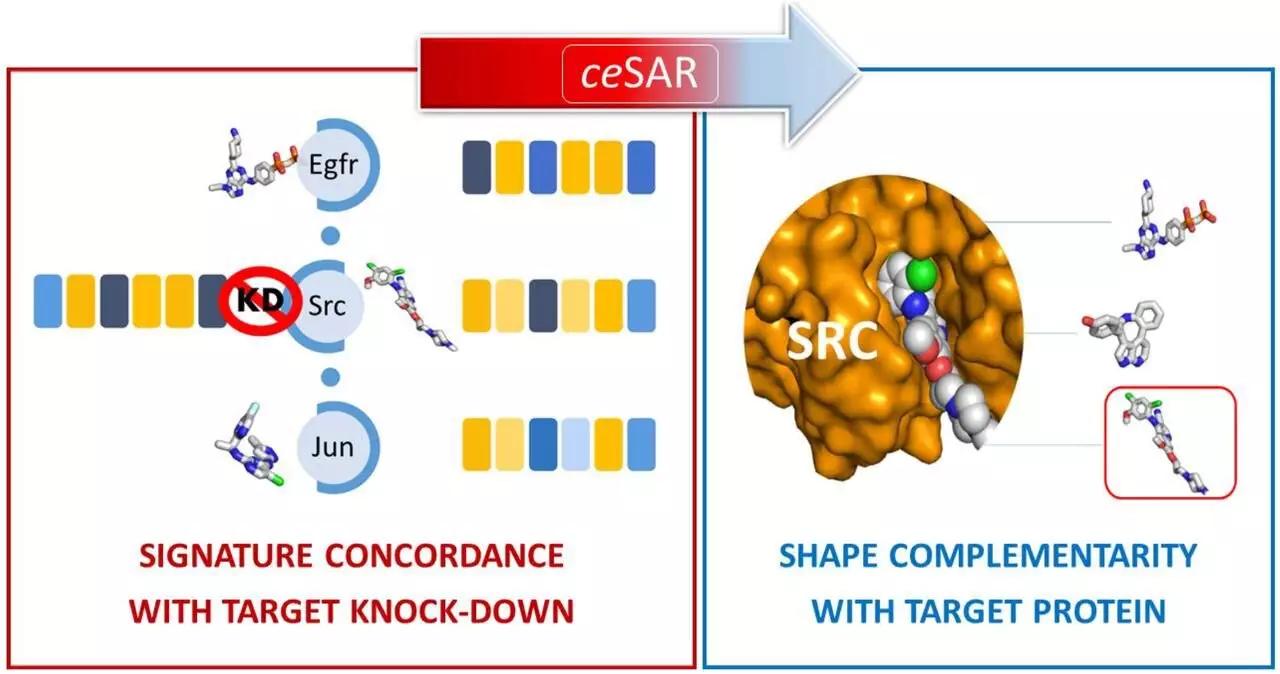

In a groundbreaking study published in the journal Science Advances by researchers from the University of Cincinnati College of Medicine and Cincinnati Children’s Hospital, a new method has been discovered to enhance the speed and success rates of drug discovery processes. This innovative approach holds immense promise for revolutionizing the field of pharmaceutical research.
The researchers utilized a novel combination of screening methods to identify potential new drugs efficiently. By leveraging a database from the Library of Integrated Network-based Cellular Signatures (LINCS), they were able to simultaneously screen tens of thousands of small molecules with potential therapeutic effects. This initial screening was followed by targeted docking simulations to model the interaction between small molecules and their protein targets, significantly expediting the process from months to mere minutes.
Dr. Alex Thorman, one of the co-first authors of the study and a postdoctoral fellow in the Department of Environmental and Public Health Sciences, emphasized the transformative impact of this faster screening method on drug discovery timelines. Not only does it accelerate the drug research process, but it also enhances the efficiency of identifying potentially effective compounds. This advancement brings new hope to individuals suffering from diseases without known cures, including those battling cancer.
Furthermore, this innovative approach paves the way for more targeted treatment options in precision medicine. By considering variations in individuals’ genes, environments, and lifestyles, researchers can tailor disease prevention and treatment strategies to specific patient profiles. This personalized approach holds great promise for improving patient outcomes and minimizing adverse effects.
Dr. Thorman also highlighted the significant implications of an accelerated drug discovery process in responding to public health crises, such as the COVID-19 pandemic. The ability to quickly identify and develop potential treatments in times of crisis can be a game-changer in effectively managing and mitigating the impact of infectious diseases on a global scale.
The innovative screening methods introduced in this study represent a paradigm shift in the field of drug discovery. By combining advanced technology with traditional screening approaches, researchers have unlocked new possibilities for rapidly identifying and developing novel therapeutic compounds. This breakthrough not only accelerates the drug discovery process but also holds the potential to transform the landscape of precision medicine and public health responses.
In the realm of software development, the ability to swiftly and accurately address bugs is…
The realm of quantum computing and communication is not just an abstract dream anymore; it…
In a remarkable leap for the field of material science, a collaborative research initiative has…
Throughout Earth's vast history, our planet has endured five major mass extinction events that reshaped…
Rainfall is a vital element of our planet’s hydrological cycle, yet many aspects of its…
On a night when the universe aligns, a mesmerizing phenomenon awaits: the appearance of the…
This website uses cookies.